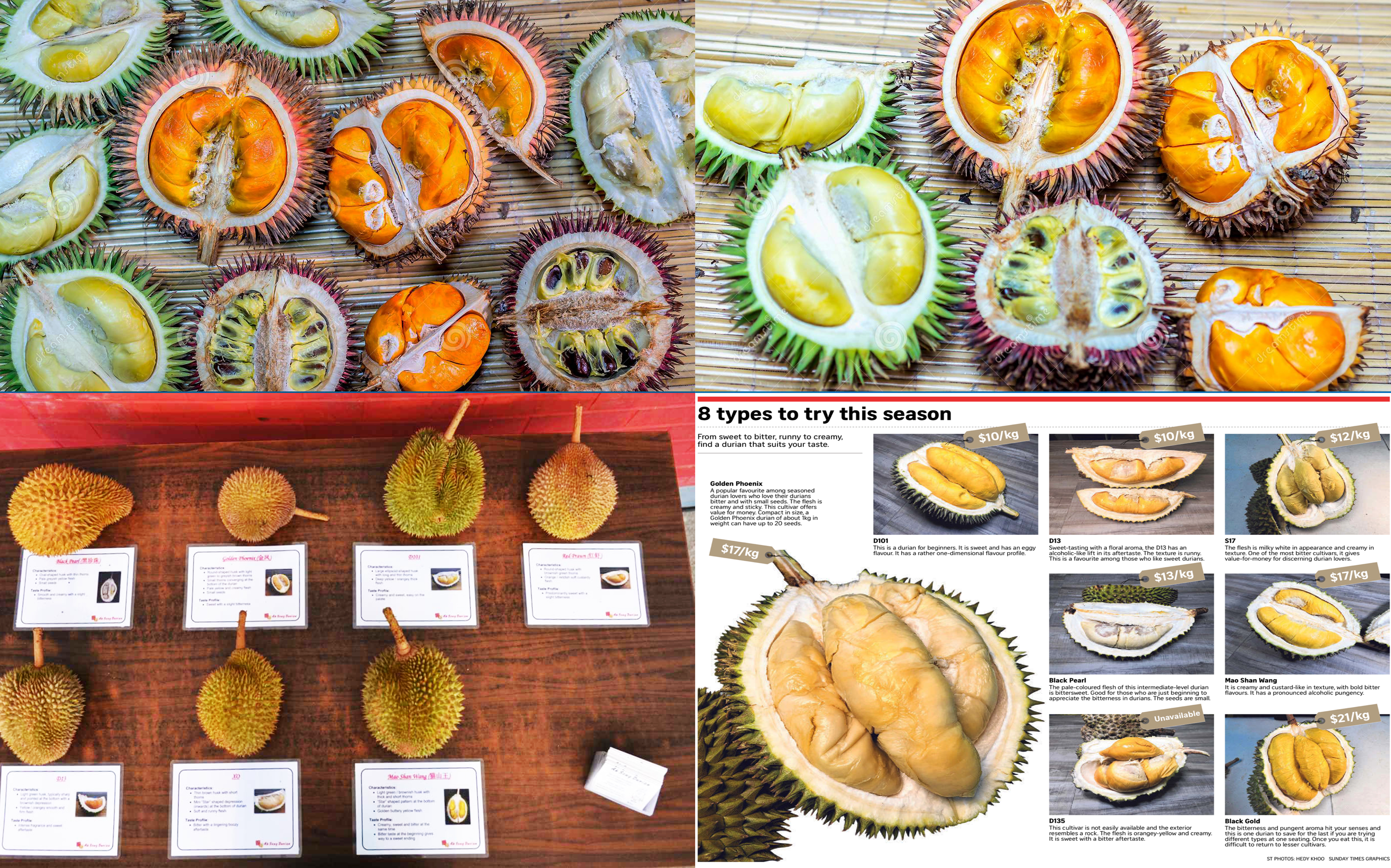The Fruit I love That Many Dislike
Durian. What is it? A large, smelly fruit that looks like jack fruit or a green porcupine. Why it’s banned in some places: The fruit smells so pungently bad that many public places prohibit people from carrying it. What does it really taste like? As a durian lover, I say it has a sweet, custard taste, with the texture of creamy cheesecake. Flavors often attributed to the durian fruits are caramel and vanilla. Some fruits have a slightly bitter taste, together with some sweetness. I heard people say, “it tastes like heaven and smells like hell.”
The fruit is available in the US and Europe and I have not heard of any ban on it. In Dallas Fort Worth Metroplex where I live, you will find them in most Asian Markets. They sell it with the pulp and seed or the whole fruit, both frozen. They are, however, pricey, especially the Malaysian variety. There is increasing demand for the fruit that growers could hardly keep up with it an to add to is the added cost for transport, makes it a luxury food item.
The many varieties of durian
The durian is said to be the world’s smelliest fruit. But It’s a delicacy in Southeast Asia, but many also find the smell too disgusting–even unbearable. In spite of repulsive smell, the fruit is incredibly high in healthy nutrients, including B vitamins, vitamin C, minerals, plant compounds, healthy fats, and fiber. It improves muscle strength, skin health and even lowers blood pressure. Furthermore, one small durian contains 23g of dietary fiber, which is nearly all of your daily nutritional requirement.
Durian trees are large, growing to 25–50 meters (80–165 feet) in height, depending on the species. There are about 30 recognized species of the fruit, many of them being grown in the Philippines, Indonesia, Thailand, and Malaysia. It has been crossed breed to produce about 300 different varieties. In some regions the durian nicknamed “the king of fruits” is distinctive for its large size, strong odor, and hard thorn-covered rind. It could weigh about 2-7 pounds. It could be dangerous if it fell on your head from the tree.
The flesh can be consumed at various stages of ripeness, and it is used to flavour a wide variety of savoury and sweet desserts in Southeast Asian cuisines. It is used as an ingredient confectioneries, ice-cream and bake products. Most people like to eat fresh. The seeds can also be eaten when cooked.
Travel and food writer Richard Sterling says: “Its odor is best described as pig-excrement, turpentine and onions, garnished with a gym sock. It can be smelled from yards away. Despite its great local popularity, the raw fruit is forbidden from some establishments such as hotels, subways and airports, including public transportation in Southeast Asia.” That being said, I have a member of our family who hate the smell of the fruit that did not want to be around it. Somehow, he forced himself to taste the fruit and got hooked on it. He is did some research on the fruit’s nutritional value and became a proponent durian. There is no question it is one of the sweetest fruit if you could just tackle the smell.
If you have diabetes, you need to limit the amount of durian. You could not feast on it because of its high sugar content. The fruit has simple sugars like sucrose, fructose and glucose, which are absorbed straight from the intestinal tract to the blood stream. Diabetics should limit their intake to 2 servings (1 serving= 2 seeds) a day.
1. Durian is loaded with cholesterol
Not true. Durians have zero cholesterol. Durians have heart-healthy monounsaturated fats which help to lower your levels of bad LDL cholesterol.
2. Mangosteen must be eaten with durian to reduce heatiness
According to conventional Chinese wisdom, a mangosteen, being a cooling fruit, will reduce the heatiness associated with durians. However, there is no scientific research to support this.
3. Eating durian and drinking beer at the same time may kill you
There is no scientific evidence to show that this is a lethal combination. It is more likely to cause bloating, indigestion and discomfort as your liver has to work extra hard to metabolize both fats and sugars in the durians and the alcohol, especially if you have consumed both in excessive amounts.
4. Eating durian can boost your libido
The heatiness in the durian may cause your body temperature to rise, but this does not make the fruit an aphrodisiac.
Despite the myths associated with the durian, it remains a highly prized fruit.
Final message from dietitians:
The durian is a highly nutritious fruit which, when eaten in moderation, will provide the body with many minerals, vitamins, and good fats. Eating two to three seeds of durian at one sitting is sufficient, but because durians can become so addictive, people tend to eat more than they should.
Just like anything else in life the rule should be: Moderation in the things that are good and total abstinence of things that are harmful.


